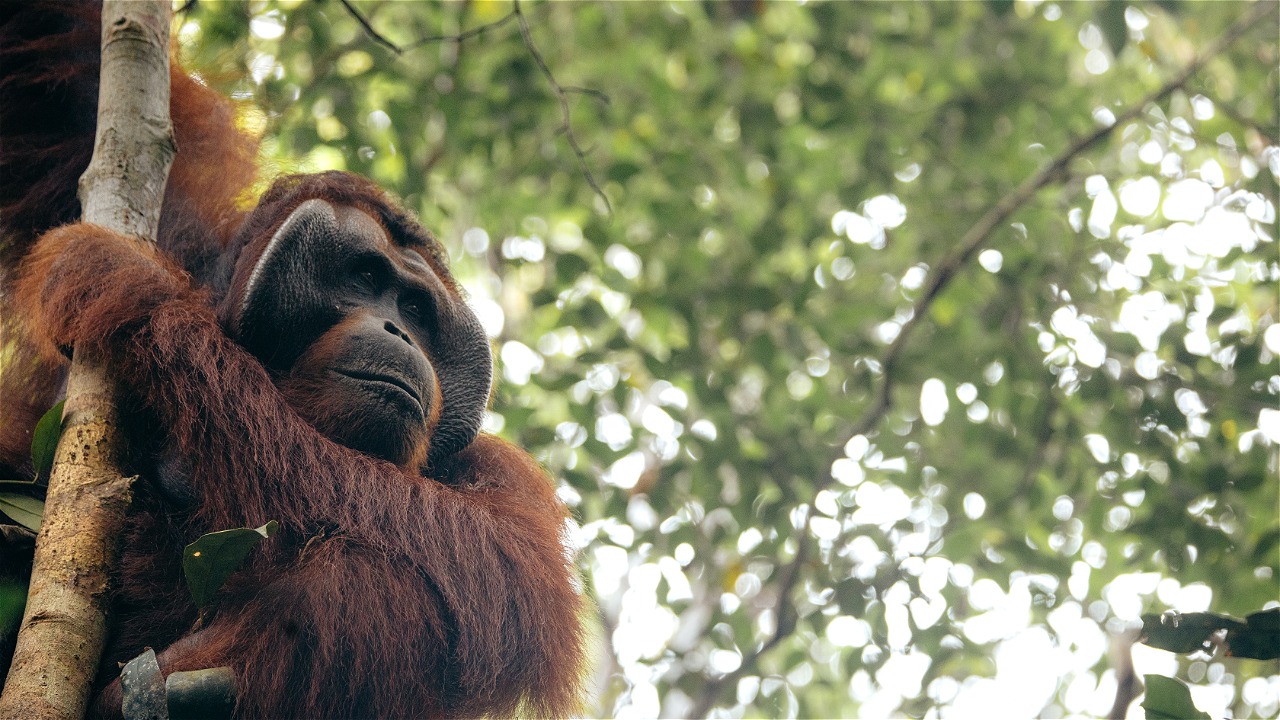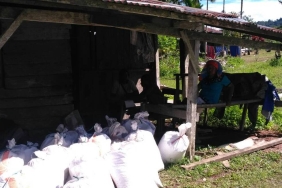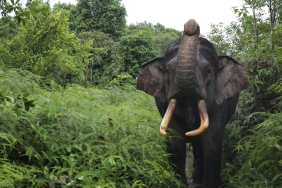ORANGUTAN BEHAVIOR CHANGES DURING HAZE
By: Chairul Saleh - WWF Conservation Science for Flagship Species Coordinator
The fires that have occurred over the past few months in Indonesia have burned around 2 million hectares of land and forests. The impact has been devastating, not only disrupting the daily lives of millions of people in Indonesia, the haze from these fires has caused hundreds of thousands of people in Sumatra and Kalimantan to suffer from ARI. Not to mention, the haze also has a direct impact on various types of flora and fauna.
In Kalimantan, Orangutans, creatures that are genetically closely related to humans, where they live are direct victims of land and forest fires, including in Central Kalimantan.
The haze that engulfed the Orangutan's habitat forced them to leave their habitat to save themselves, including by entering residential areas. Some of them are known to even experience eye health problems.
Forest fires are also suspected to have caused changes in the daily behavior of orangutans, as observed by WWF Indonesia in the Lake Panggu Alas area, Sebangau National Park, Central Kalimantan. During the haze season, it was found that orangutans made their nests to sleep earlier at 14:30 - 15:00 compared to the previous average sleeping time, which was at 17:00. Changes also occur in waking times, which usually orangutans wake up between 04.30-05.00, during the haze season orangutans wake up on average at 06.00.
In addition, changes in the height of nests made during the haze were also observed, with orangutans making lower nests than in the absence of haze. Individuals with altered feeding patterns were also observed. During this time, there were orangutans that only ate the tubers of a pandanus tree in one day, even though orangutan food fruits, such as Kabali lid trees (Diospyros sp) were available in the forest at this time. Both of these changes are thought to have been made to avoid the thicker afternoon to early morning haze, as the descending haze is carried by dew that collects on the tree canopy.
Based on Borneo Orangutan Survival (BOS) Foundation Nyaru Menteng's records, since September 2015 it, together with the Central Kalimantan Natural Resources Conservation Agency (BKSDA), has evacuated at least eight orangutans in Central Kalimantan affected by forest fires. One Orangutan was also rescued in the Sampit area by the Orangutan Foundation (UK) in collaboration with the Central Kalimantan Natural Resources Conservation Center.
Forest fires that cause haze disasters have occurred for more than 15 consecutive years, and must be prevented from recurring. In addition to directly threatening public health, the impact also threatens the survival of endangered animals, which need to be preserved so that they can continue to carry out their ecological functions in maintaining the balance and sustainability of their habitats, which provide ecosystem services that humans need.





